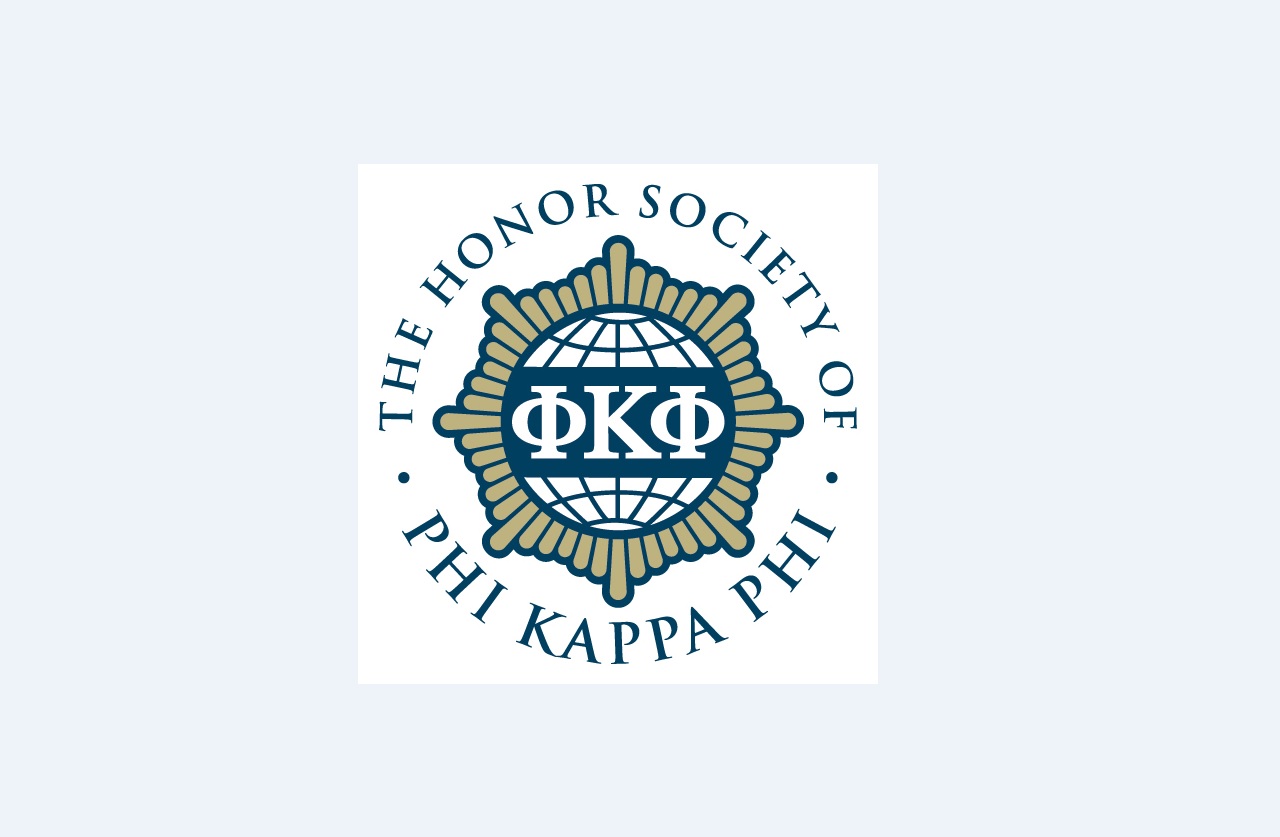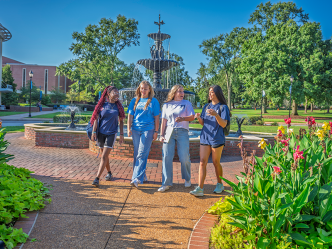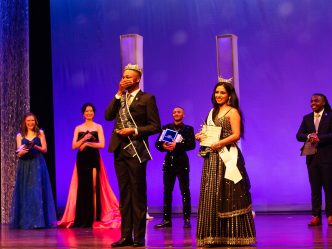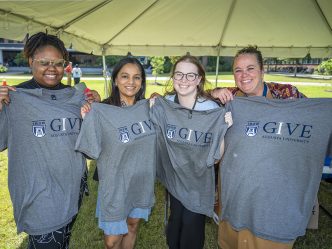The Augusta University chapter of Phi Kappa Phi will host its 17th Annual Phi Kappa Phi Student Research and Fine Arts Conference on Friday, March 18 in the Jaguar Student Activities Center.
The conference, which allows undergraduate students (including non-PKP students) from both the Summerville and Health Sciences campuses to showcase their scholarly and artistic endeavors, runs from noon to 6 p.m. and is free and open to the public.
Started in the spring of 1999, the conference has since become synonymous with undergraduate student excellence on both of the university’s Augusta campuses, and was featured in the summer 2013 issue of the “Phi Kappa Phi Forum,” the official magazine of Phi Kappa Phi.
Dr. Angela Spencer, chair of the PKP Conference Committee, said one of the main goals of the conference is to get students interested in undergraduate research.
“I think it promotes research really well to students who aren’t involved,” she said. “We want to show freshmen and sophomores what’s happening, and that they’re perfectly capable of having a goal to do research next year.”
Ultimately, though, she said the conference proves just as beneficial for presenters.
“It’s a great way to start thinking about a conference, getting exposed to the conference environment in a way that’s not cost prohibitive,” Spencer said. “With a lot our students, I think we do a good job of sending them to other conferences. I think this is a great way to get them ready for that.”
Taking place in mid-March, the PKP conference typically begins the “conference season” for undergraduate researchers, giving students a chance to prepare their research for presentation to external audiences. Experienced conference-goers will find the format familiar: typically, the conference boasts a large poster session followed by a handful of oral presentations.
As a multidisciplinary conference, though, student researchers—experienced or otherwise—are also given an opportunity to do something they might otherwise not have a chance to do at more specialized conferences: address a mixed crowd.
“The audience is fairly broad versus a scientific meeting, where the crowd may be more focused in on what you’re talking about specifically,” Spencer said. “From the students’ perspective, they’ve got to be pretty good at talking to broad audiences, which sets this conference apart from other meetings.”
That skill, the ability to address a broad audience, Spencer explained, is invaluable to researchers at any level. It proves especially useful at the PKP conference, where student presentations can range from an exploration of gender-related issues to the cloning of enzymes.
“If you ran into someone on an elevator, how would you explain what you do to someone outside of your field very quickly?” Spencer said. “How would you explain to your parents what you do in fifteen minutes? That’s one of our goals, to help students answer those questions.”
She stressed, however, that although the conference focuses on undergraduate work, it is not solely for students. The conference welcomes faculty from both campuses as well, and provides a unique opportunity to network with colleagues in other disciplines.
“For faculty, the conference is a way to hear what other people are doing on campus and to form potential collaborations,” Spencer said. “So, in addition to bringing in students, we’ve also made efforts to get faculty interested in this event as well.”
Part of that effort was changing the day of the conference. Traditionally scheduled for Wednesdays, this year, the PKP conference has been moved to a Friday.
“We changed the date of the conference to make attendance easier for students,” Spencer said. “With fewer classes on Fridays, though, we’re also hoping the new time slot draws in some of our faculty colleagues as well.”
For more information about the 17th Annual Phi Kappa Phi Student Research and Fine Arts Conference, contact PKP Conference Committee Chair Angela Spencer at anspencer@gru.edu.
 Augusta University
Augusta University





